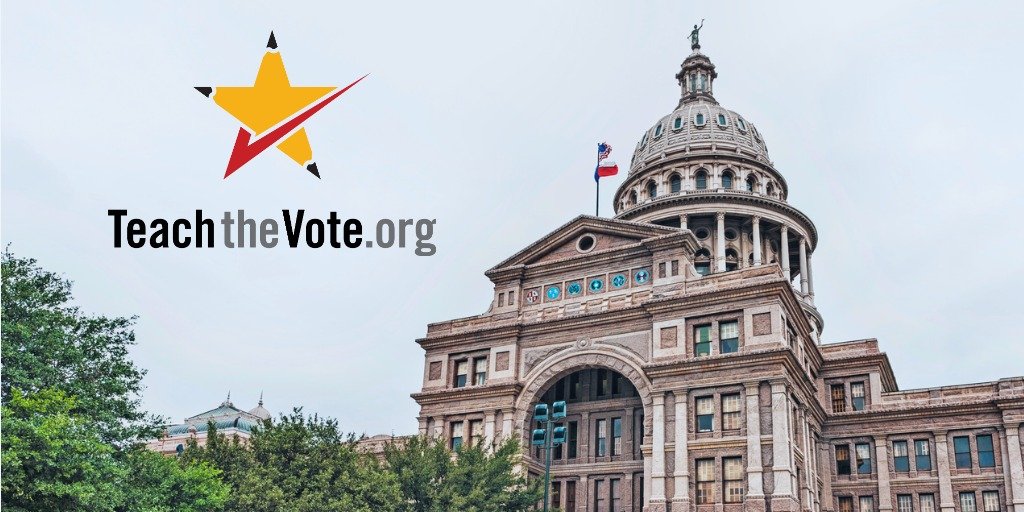Texas election roundup: Texans could face serious decision whether to vote during pandemic

COVID-19 Elections
Date Posted: 4/23/2020 | Author: Mark Wiggins
Texas voters may have a difficult decision ahead of them when it comes to casting their ballot in the upcoming runoff elections. It's one that could have serious implications concerning their health and that of their families.
As Americans continue to practice social distancing to combat the spread of COVID-19, election administrators are looking ahead to how to maintain the democratic process while safeguarding citizens from a disease that has become the second leading cause of death in America. The disease has now killed more Americans in a single month than all flu deaths in the previous year -- even with most of the country shut down.
The U.S. Centers for Disease Control (CDC) has recommended voting jurisdictions increase the use of mail-in methods of voting in order to minimize the potential for voters to be exposed to the deadly virus, but the expansion of ballot-by-mail to protect voters appears to have become somewhat of a partisan debate.
State law currently allows a voter to mail in an absentee ballot if they are 65 years or older, are disabled, are out of the county on election day and during the period of early voting, or are confined in jail but otherwise eligible. While many states -- including those run by Republican governors -- have expanded the availability of mail-in voting in order to protect voters, some leaders in Texas are fighting attempts to expand ballot-by-mail and instructing local officials to move forward with in-person voting for the July 14 runoff elections.

The Texas Democratic Party has filed suit in state and federal court arguing that all Texas voters should be allowed to fill out an absentee ballot in order to avoid the potential for infection at a physical polling site. Texas Attorney General Ken Paxton, a Republican, responded by fighting the lawsuit and threatening voters with criminal penalties, including potential felony charges, if they cast an absentee ballot without meeting the current legal requirements. Last week, a state district judge issued an injunction expanding the use of mail-in ballots to all voters who risk exposure to the coronavirus by voting in person. Paxton is expected to appeal the decision on behalf of the state.
President Donald Trump has led the opposition to his own administration's recommendations regarding mail-in voting by warning of the potential for fraud. While there are slightly higher rates of mail-in ballot fraud than in-person voter fraud, election experts say both are "extremely rare" and can be prevented. A commission launched by Trump to investigate the president's allegations of fraud in the 2016 elections disbanded in 2018 after finding "no evidence to support claims of widespread voter fraud."
The consequences of holding in-person elections during a pandemic have already been demonstrated. In Wisconsin, at least 19 people tested positive for COVID-19 and have linked their exposure to the disease to having voted in person during that state's April 9 elections.
It's still unclear how long the COVID-19 threat will linger. While some states appear to be nearing a decline, social distancing guidelines likely will continue to be necessary to ensure progress is not lost. Meanwhile, the World Health Organization (WHO) has warned that a second, "more difficult" wave of COVID-19 could be ahead.
Despite the partisan split among political leaders, popular support behind voting by mail is overwhelming. According to a Wall Street Journal/NBC News poll, 67% of Americans support mail-in ballots for the November elections. Some 58% support changing laws to permanently expand voting by mail.
While Texas' July 14 primary runoff elections are quickly approaching, Gov. Greg Abbott has remained relatively quiet on the issue of expanding mail-in ballots. If the normal rules remain in effect, Texas voters will face the same choice voters in Wisconsin faced earlier this month: Whether to exercise your right to vote or to protect your health and that of your family.
CONVERSATION
RECOMMENDED FOR YOU

Congress | Federal, COVID-19, Curriculum | Instruction, Educator Compensation | Benefits, Educator Preparation | Certification, Elections, School Finance, School Safety, Testing | Accountability, Texas Legislature
08/04/2023
Teach the Vote’s Week in Review: Aug. 4, 2023
ATPE weighs in on current political climate for education in Houston Chronicle story—plus, a look at federal ed prep and special education developments.

Elections, Miscellaneous, TEA | Commissioner | SBOE, Testing | Accountability, Texas Legislature
06/21/2024
Teach the Vote’s Week in Review: June 21, 2024
STAAR scores continue to generate buzz. Plus, watch this video on upcoming House of Delegates consideration of the ATPE Legislative Program.

02/24/2026
Get out and early vote this week for important statewide offices
It’s time to Teach the Vote in the races for Texas governor, lieutenant governor, attorney general, and comptroller.


